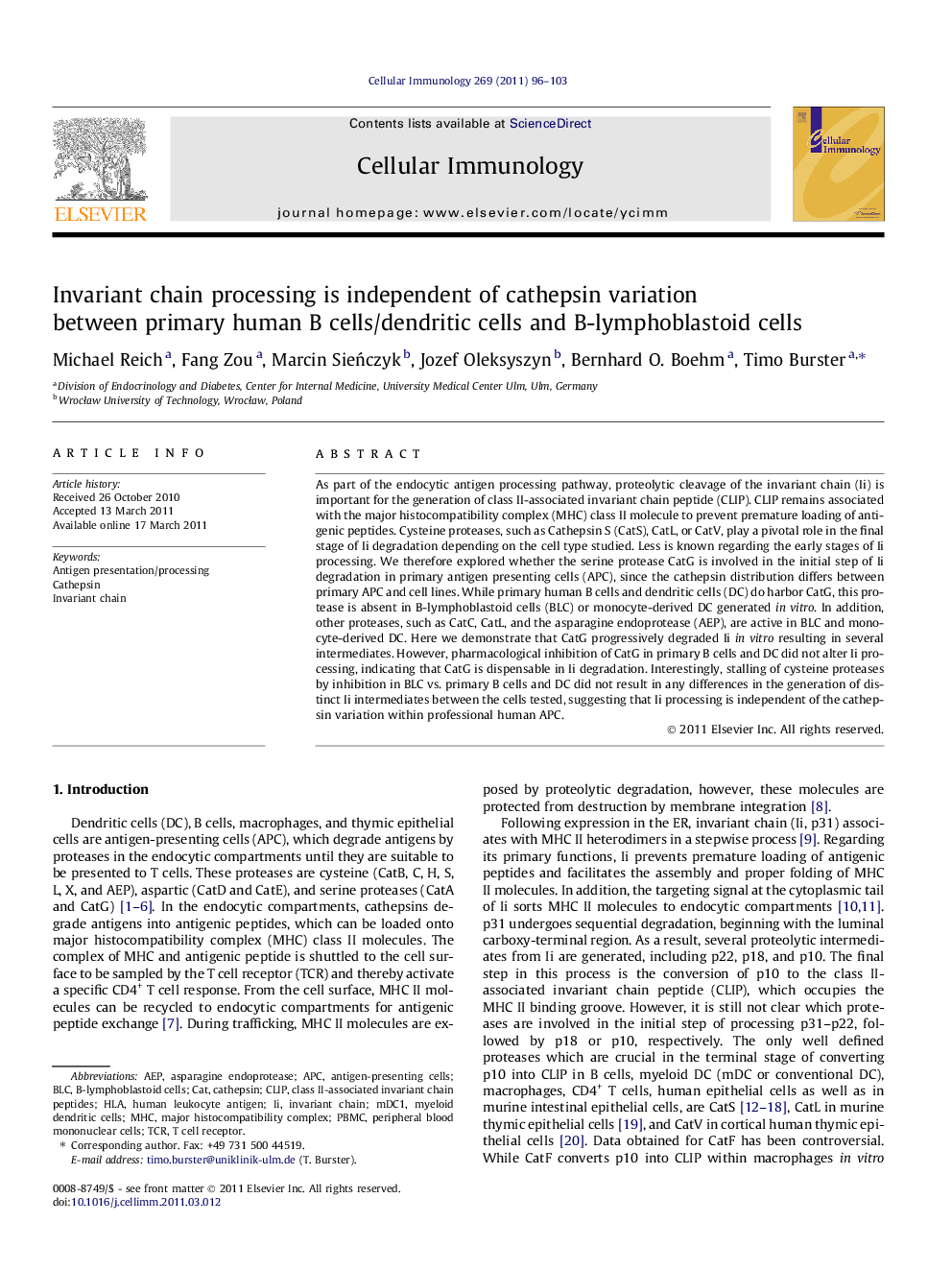| Article ID | Journal | Published Year | Pages | File Type |
|---|---|---|---|---|
| 2167416 | Cellular Immunology | 2011 | 8 Pages |
As part of the endocytic antigen processing pathway, proteolytic cleavage of the invariant chain (Ii) is important for the generation of class II-associated invariant chain peptide (CLIP). CLIP remains associated with the major histocompatibility complex (MHC) class II molecule to prevent premature loading of antigenic peptides. Cysteine proteases, such as Cathepsin S (CatS), CatL, or CatV, play a pivotal role in the final stage of Ii degradation depending on the cell type studied. Less is known regarding the early stages of Ii processing. We therefore explored whether the serine protease CatG is involved in the initial step of Ii degradation in primary antigen presenting cells (APC), since the cathepsin distribution differs between primary APC and cell lines. While primary human B cells and dendritic cells (DC) do harbor CatG, this protease is absent in B-lymphoblastoid cells (BLC) or monocyte-derived DC generated in vitro. In addition, other proteases, such as CatC, CatL, and the asparagine endoprotease (AEP), are active in BLC and monocyte-derived DC. Here we demonstrate that CatG progressively degraded Ii in vitro resulting in several intermediates. However, pharmacological inhibition of CatG in primary B cells and DC did not alter Ii processing, indicating that CatG is dispensable in Ii degradation. Interestingly, stalling of cysteine proteases by inhibition in BLC vs. primary B cells and DC did not result in any differences in the generation of distinct Ii intermediates between the cells tested, suggesting that Ii processing is independent of the cathepsin variation within professional human APC.
